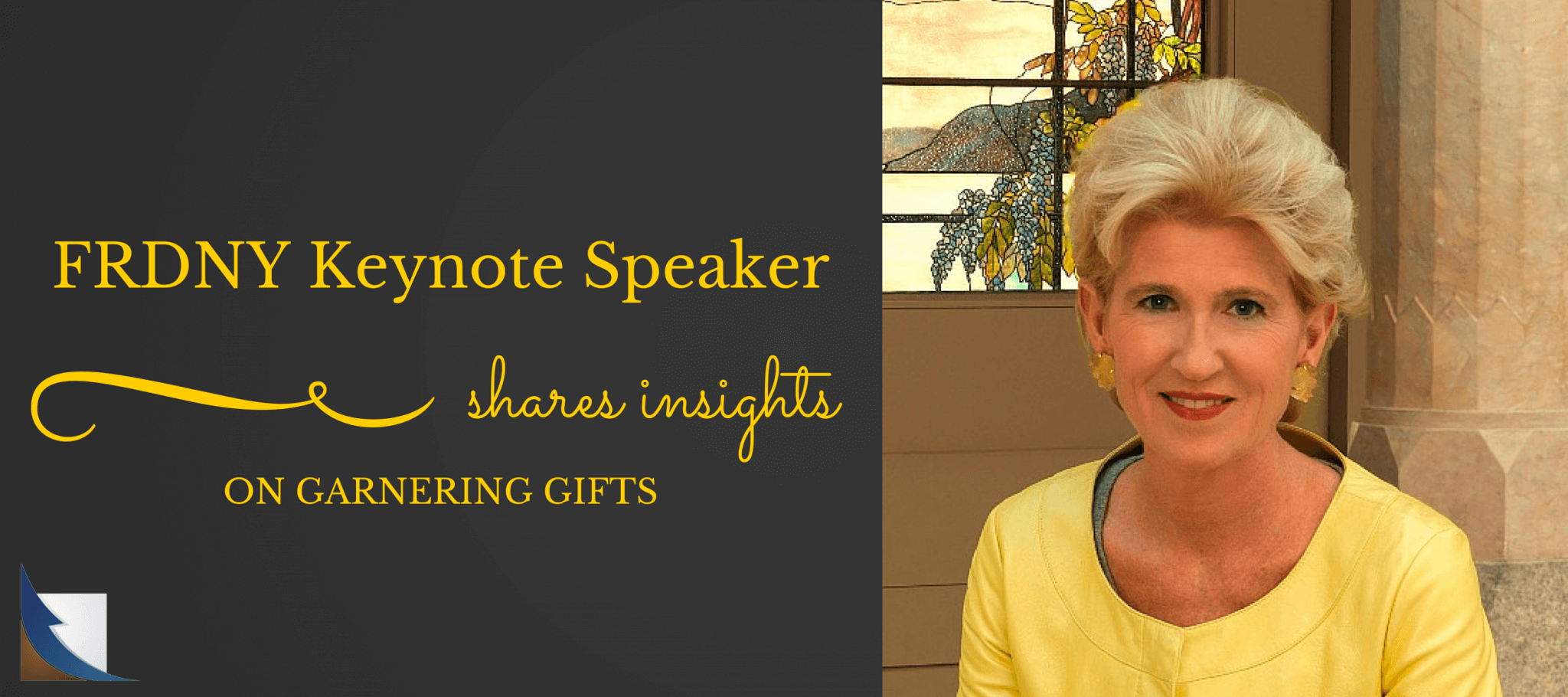“Fundraising is about relationships, not money. It’s truly a partnership,” says Emily Kernan Rafferty, Chair Emerita of New York’s venerable Metropolitan Museum of Art. Rafferty was the keynote speaker at last week’s Fundraising Day in New York (FRDNY), an annual day of workshops and discussions sponsored by the Association of Fundraising Professionals, NYC Chapter. She shared insights and strategies based on her own experience raising a staggering $1.6 billion to support the Met and its programs.
“The most effective fundraisers truly love people,” Rafferty told the rapt crowd of 1,800. “We care. That’s the essence of what we do.” She and other successful fundraisers know that building a strong relationship with a donor involves the same qualities as those needed to forge a lasting friendship—trust, consideration, authenticity, and integrity.
For successful fundraising, this caring extends to your mission. Seek an organization whose mission you truly care about. This deep commitment will enable you to convey how you’re improving the world: whether it’s supporting a love of art or music, campaigning for clean water, finding homes for stray animals, or feeding the hungry. “The world is a place of great need and a lot of people want to help,” states Rafferty. “We help them find what works, and share their joy in giving to a worthwhile cause.”
Listening, responding, timing, and patience are all keys to developing good relationships with fundraisers. “Patience in getting gifts can be very hard, but it’s so worth it,” says Rafferty, adding that it took her ten years to ask for one important gift. However, not all organizations have the luxury of waiting ten years. For example, in a capital campaign, it’s essential to move more quickly. Perhaps you’re raising funds to construct a new building that was needed yesterday. Or on the university level, you’re recruiting a top researcher for a soon-to-be endowed chair. In these and other instances, time is of the essence.
In fundraising, timing is everything. Having developed a personal relationship with a donor, an effective fundraiser is sensitive to his or her cues. “The timing of the ask is so critical, yet it’s where many people make mistakes,” points out Rafferty. She recalled a meeting where an important ask was to be made. Much preparation had gone into preparing the request. “As the meeting began, the prospective donor said, ‘I’ve had a bad day.’ Yet a development officer went ahead anyway. The timing was wrong.”
Sometimes, no matter how you try, a relationship with a prospective donor just doesn’t pan out. Some years back, a couple came to the Met to discuss a philanthropic gift. Somehow they didn’t warm up to Rafferty. The day was rainy and after the meeting the couple had difficulty finding a taxi. They later complained that she didn’t see them to the door and put them in a cab herself. Rafferty took the approach that it was best to move on, and move the couple to another development officer.
The ability to bounce back from mistakes and misfortune is an essential skill for fundraisers. When things don’t go well, you regroup. Remember your donors when they’re facing adversity too—just as you would reach out to a friend. Your caring will be something they remember when things improve.


